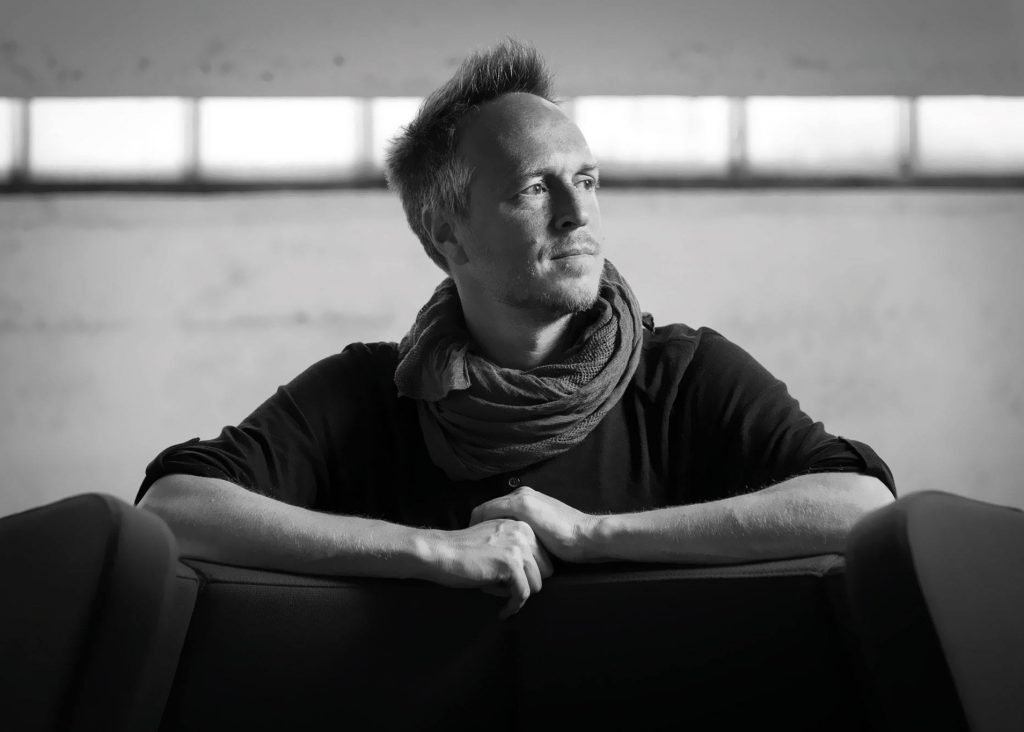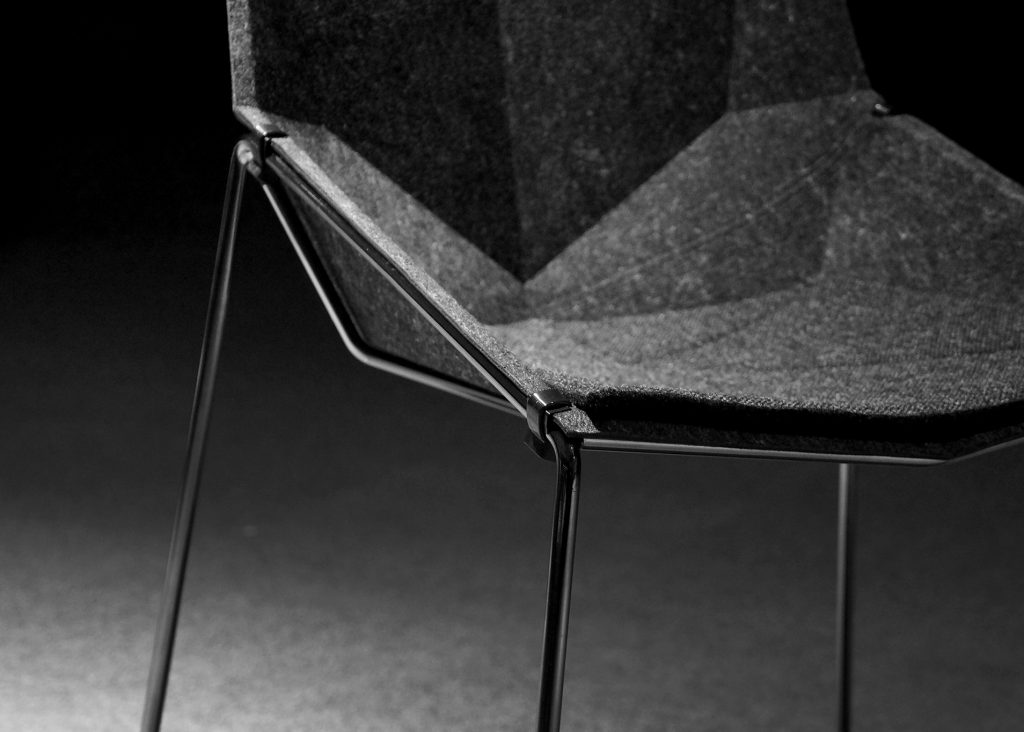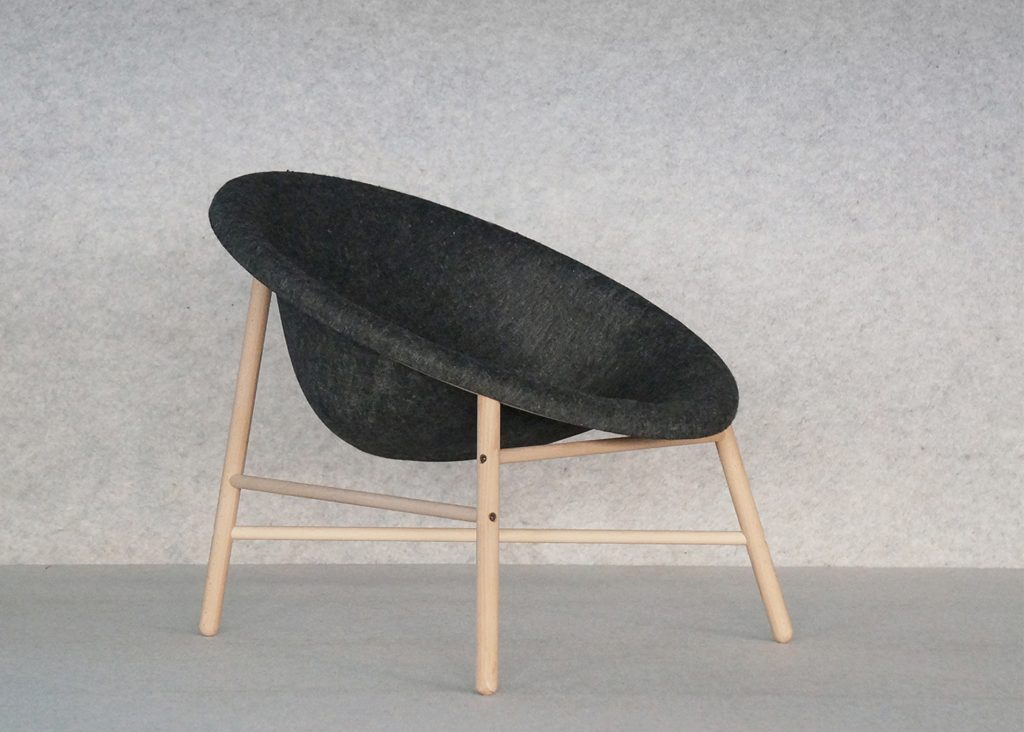View All
5 Minutes with Matej Feguš
14 March 2018
Donar
If there are two things that Donar knows well it’s how to make furniture and how to save the environment while doing it. Since 1989, they have been developing products which enable a qualitative, dynamic and active sitting experience in the office and at home.
In more recent years under the leadership of Matej Feguš, the brand has taken a direction towards creating sustainable furniture with responsible design. We spoke with Matej to find out exactly what he has planned for the future.
Is it true you used to be a student at Donar? Tell us how you worked your way up to now owning the company?
Yes, that’s true. I started working at Donar during my student years (as a chemistry student), just to earn some ‘pocket money’. Not long after, I found interest in transforming what was then, a simple refurbishment business into a small design-driven company. I worked my way up from production assistant, to development and design, purchasing and sales operations and then finally the financial part of the business.
In order to fully understand all aspects of the business, I started studying Entrepreneurship & Economics. After 5 years I was appointed as CEO of the company. Donar soon became one of the leaders and trendsetters in the local industry, winning several design awards for different products and got noticed by bigger design-driven furniture companies in Italy, France, and Scandinavia.
The biggest unexpected change happened in 2009 when the owner of the company wanted to retire. There were only two options: closing down or buying his share and continuing what we knew best. All of my co-workers gave their full support for me to dive into this adventure – which at the time was quite scary for me. We created a new strategy to implement design thinking methods into our work at all levels.
It was a roller coaster during this time but our love for the work, helped us to get over the obstacles and continue designing and developing products that were always one step in front of what the industry was doing.
How has Donar evolved since it began in 1989?
Donar started as a small operation of 3 people working mainly in the refurbishment of small offices and until 1999, when I joined, worked on projects involving furniture for new Slovenian administration. In 1999 we received our first major recognition for the Chair Alien (an executive mesh back chair with exquisite ergonomics) from the Designers Association of Slovenia which quickly developed into a collaboration with 2 design driven Italian companies.
During the years following we received several awards for our ergonomic chairs and built the company from 3 to 18 employees. Our production factory was built in 2006 which facilitated space to develop new products. I have a keen interest in technology which led me to design a new collection with built-in technology capabilities and collaborate with one of the best design-driven companies in Slovenia – Gigodesign. They took my designs and transformed them into beautiful objects with purpose – that is how the Beatnik chair was born.
We continued with implementing different IT solutions that we built into our furniture (Room in Room was the most advanced at the time – in 2011) followed by our Smart Table and ChatLoop. We started to work with several Danish designers (as their approach to design was very similar to ours) with a motto ‘keep it simple and the Earth liveable’ – which led us into the research behind sustainable materials and the concepts of circular economy.
In the last 18 years, we have worked with designers from all over Europe (Denmark, Netherland, France, England, Italy and Slovenia) and won numerous national and international awards such as; Red Dot Design Awards, Innovation Award (German Design Council), Green Product Awards, EUIPO Design Award finalists and several awards for our sustainable, circular driven strategy.
Today Donar is still a small company (22 people) driven by sustainable, circular economy strategy, where environment and social impact are always our top priority when designing a new product.
How did you come up with the concept behind the incredible Nico Less Chair?
There was always one question on my mind: DO WE NEED JUST ANOTHER CHAIR?
Too many companies make products just because they need something new… but is that really what society needs? Just another product with a short life cycle which will soon become trash. We have become a society that is constantly producing waste!
The Nico Less is an answer to this question.
Nico Less chair is a response to the human need to reduce our carbon imprint on the planet and to rediscover waste as new industrial material of the future. The amount of waste in the form of PET bottles is increasing every year and they can be recycled in different types of material. The use of waste is an important asset to reduce CO2 emissions produced in different industrial processes. The goal was to use material that is considered ‘trash’ – felt made from recycled plastic bottles.
It took us 3 years to re-think the concept of waste as industrial material of the future and to design what we believe is an answer to the polluted environment. Using double diamond design thinking methods and principles of cradle to cradle and circular economy we made a very strict brief to our architect & designer Mr. Jeza (a professor at the University of Fine Arts and Design and the University of Architecture), to design a simple chair with long sustainable & emotional value.
Only the future can give us the answer that we have succeeded in delivering a small impact with a new approach to what we believe should be a sustainable planet.
What plans does Donar have for the future to continue its expedition to create and educate about sustainable furniture?
We strongly believe in the power of education. Educating our customers, users and the general public about sustainability is key to continuing our efforts to better the wellbeing of the planet. We are working to make alliances with several EU Government institutions like the Interreg program and Circular Economy Stakeholder’s Platform to motivate them into making long term strategic decisions on how to use products and natural resources in the supply and production chain.
Our goal is to keep exploring new ways of using waste as an industrial material to reduce our carbon footprint and motivate plastic producers to reduce and reuse their material in long-lasting products with emotional value (where sustainable design plays a crucial role).
We are also putting a lot of effort into helping the younger generation understand the value of waste and why is it important to collect waste and use it, instead of polluting (goal: reducing landfills and the incineration of plastic).
We will continue our research of wasted materials and their potential use in the production of sustainable furniture.
We have already succeeded in developing new materials for sustainable furniture from not just plastic waste but also textile and cellulose leftovers, making more impact with new materials and products towards a waste-free and carbon neutral society.
Plastic was made to last for decades – let’s re-think its use and create new concepts with a sustainable design strategy to make products made of plastic stay in our homes and not in oceans and landfills!
Can you give us a sneak peek into what we can expect from Donar in Milan?
Following our motto: ‘Design is not just lines and beauty but foremost about its social impact’.
We will, for the first time, present our new products at Fuori Salone – Tortona (Ventura Future) during Milano Design week, joining forces with several design companies at National Pavilion (Slovenia Design).
3 new products will join the already awarded Nico Less Chair made out of different materials with a strong sustainable story.
We will present our brand new Collodi chair made out of waste (PET bottles and cellulose leftovers), a wooden version of Nico Less (W22) made out of recycled bottles and textile residue.
We will also be revealing a new approach to our comfort edition – New Venice Sofa which is made with patented Octaspring technology, therefore, reducing the amount of PU foam used by 30%.
We believe it is going to be a really exciting Milano exhibition.
Share the article
Similar articles
Five minutes with Luchetti Krelle
09 March 2022
Five minutes with Rachel Luchetti and Stuart Krelle from Luchetti Krelle


